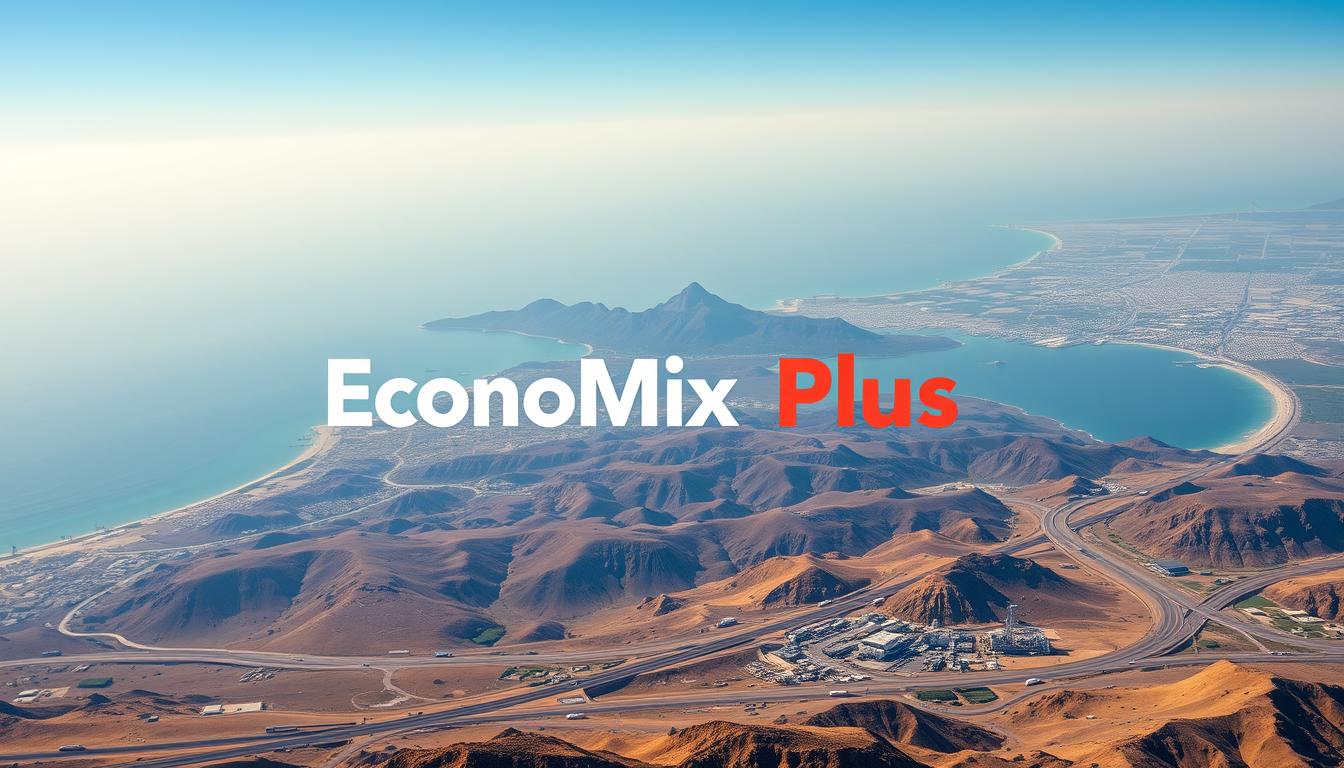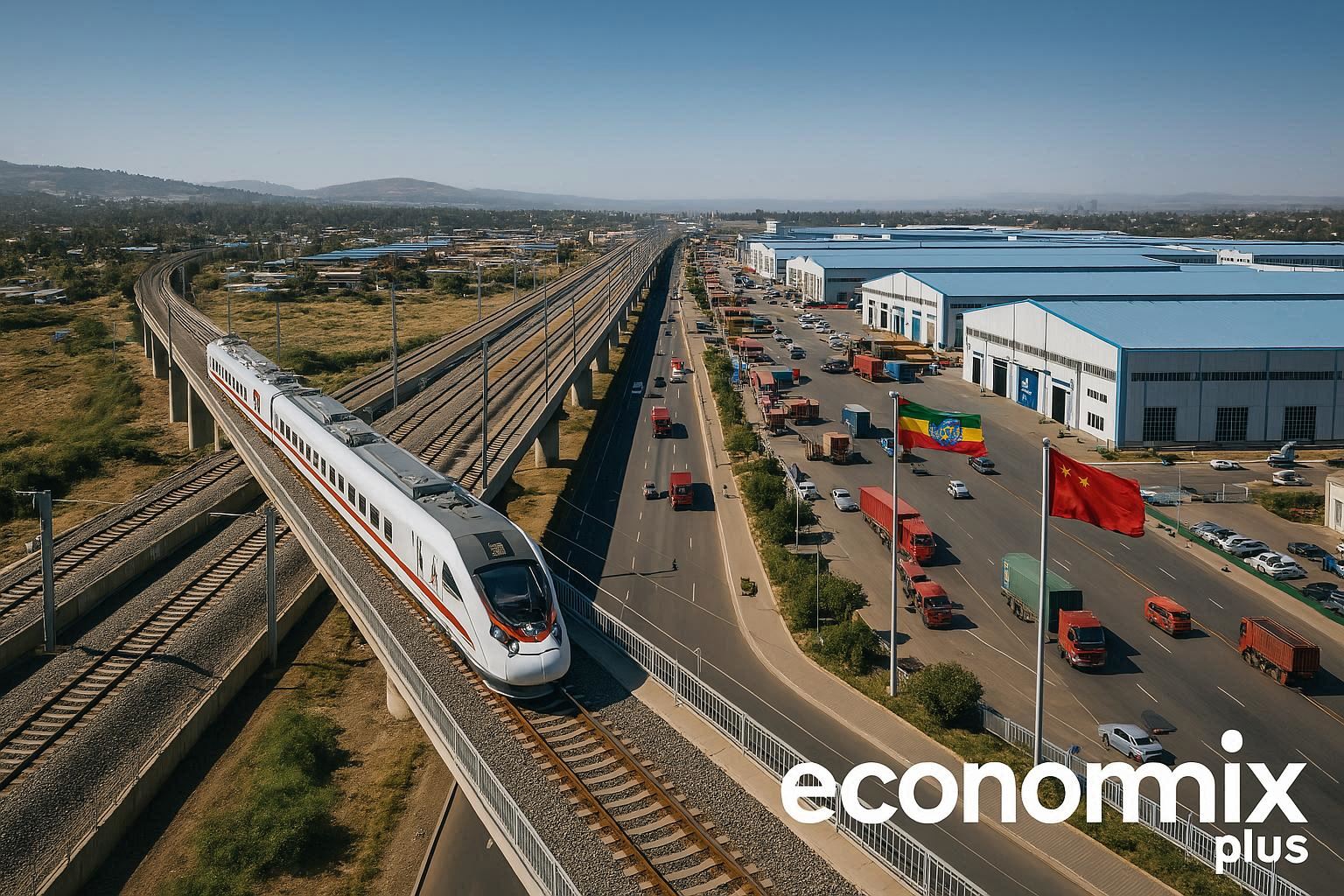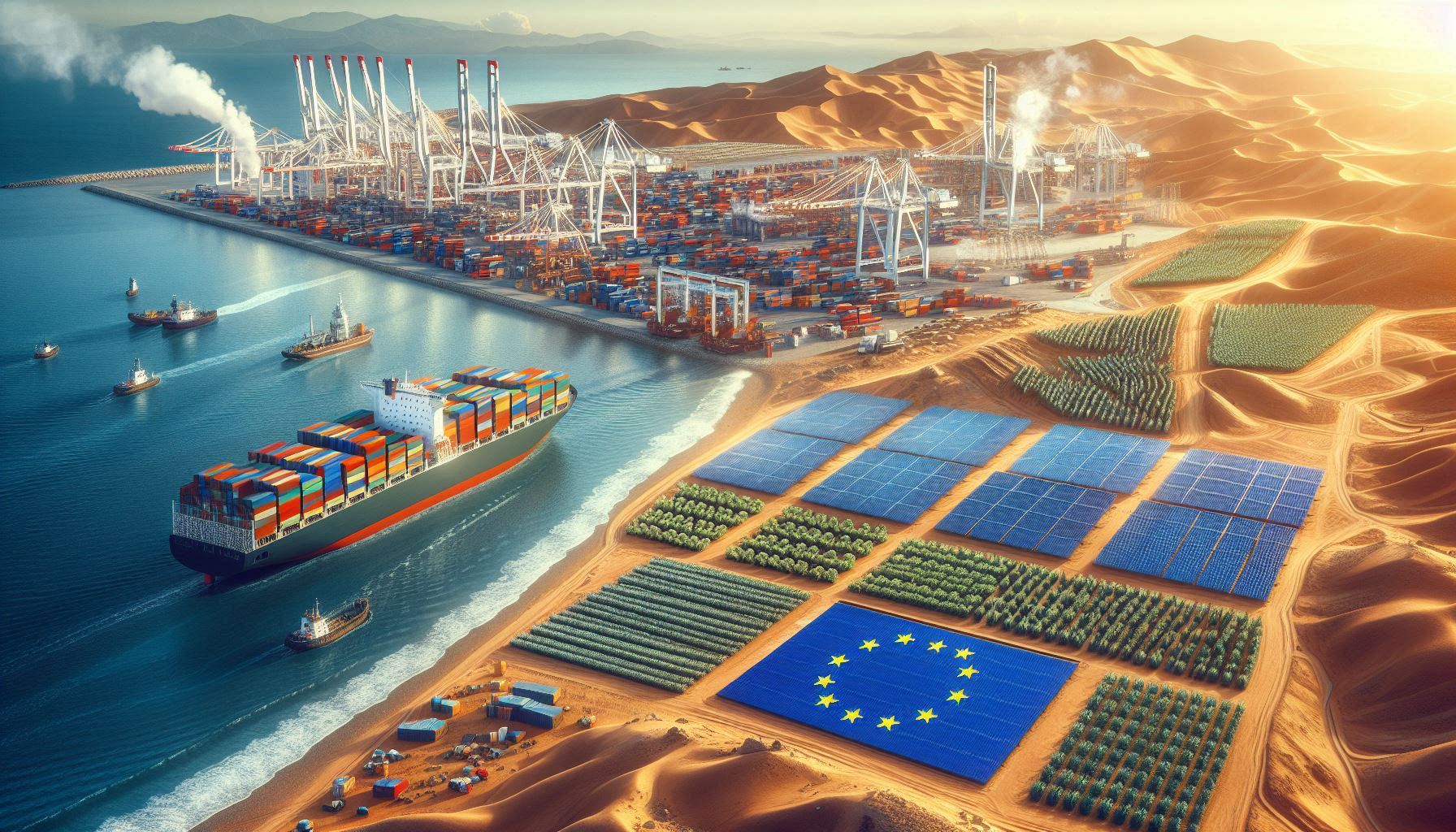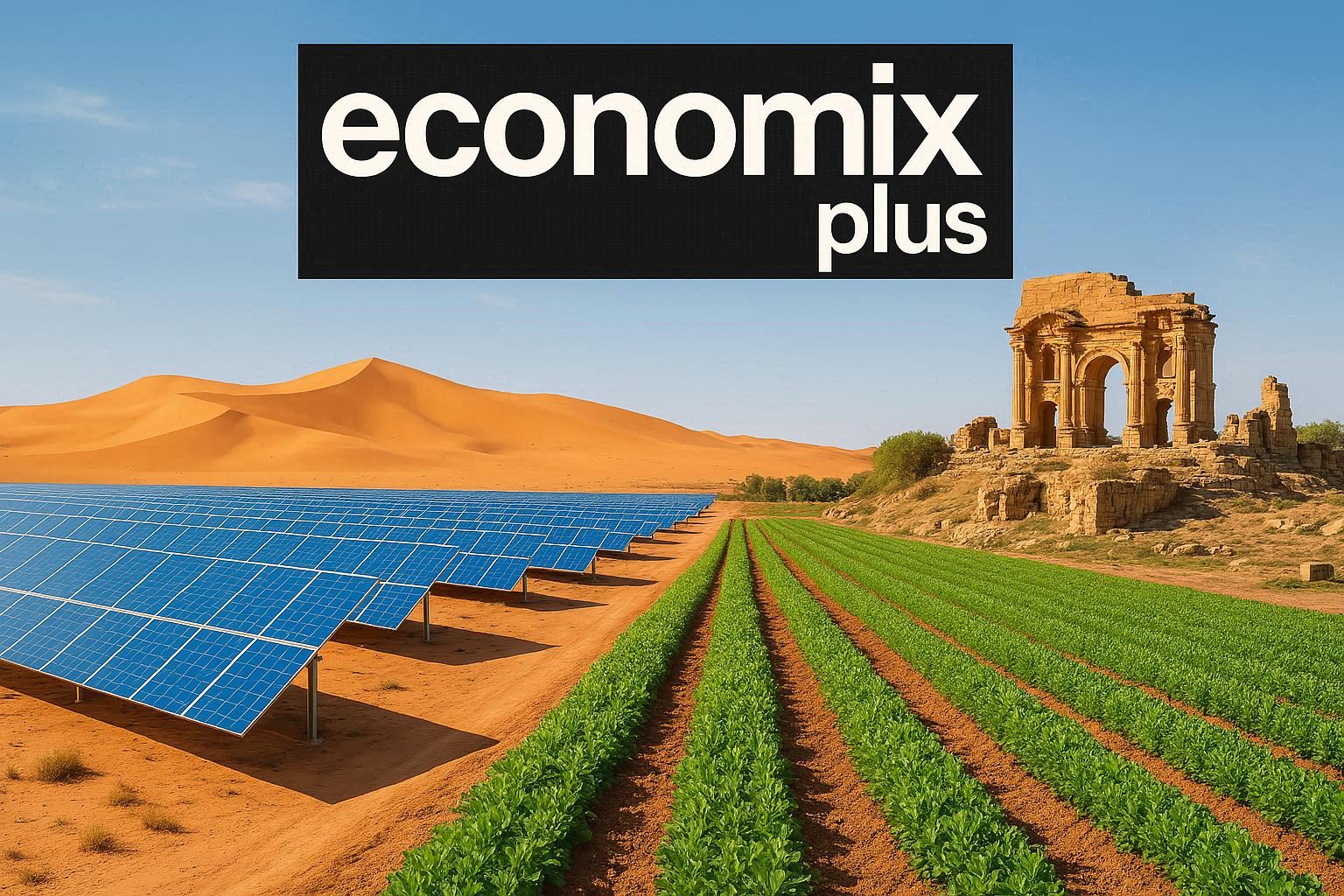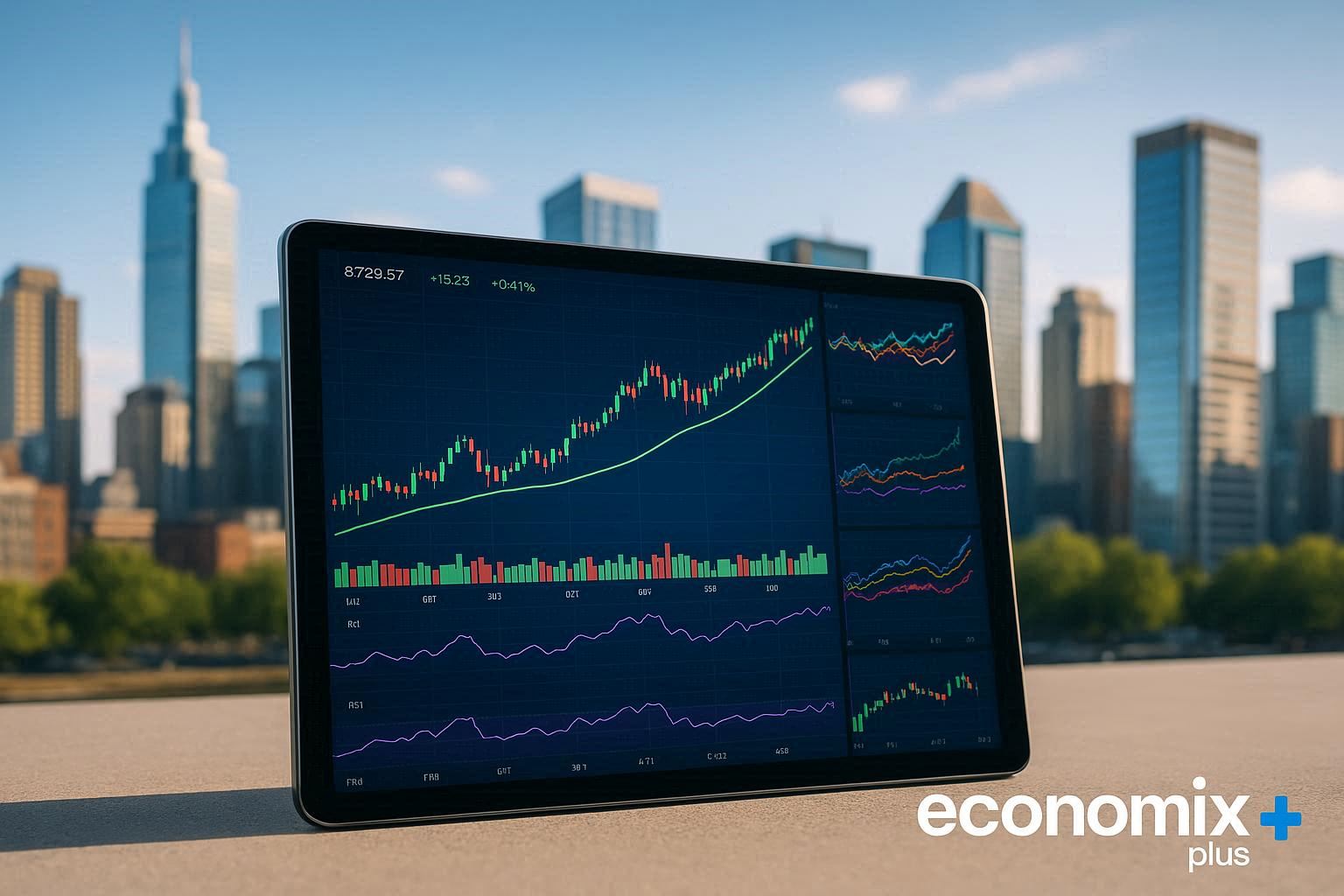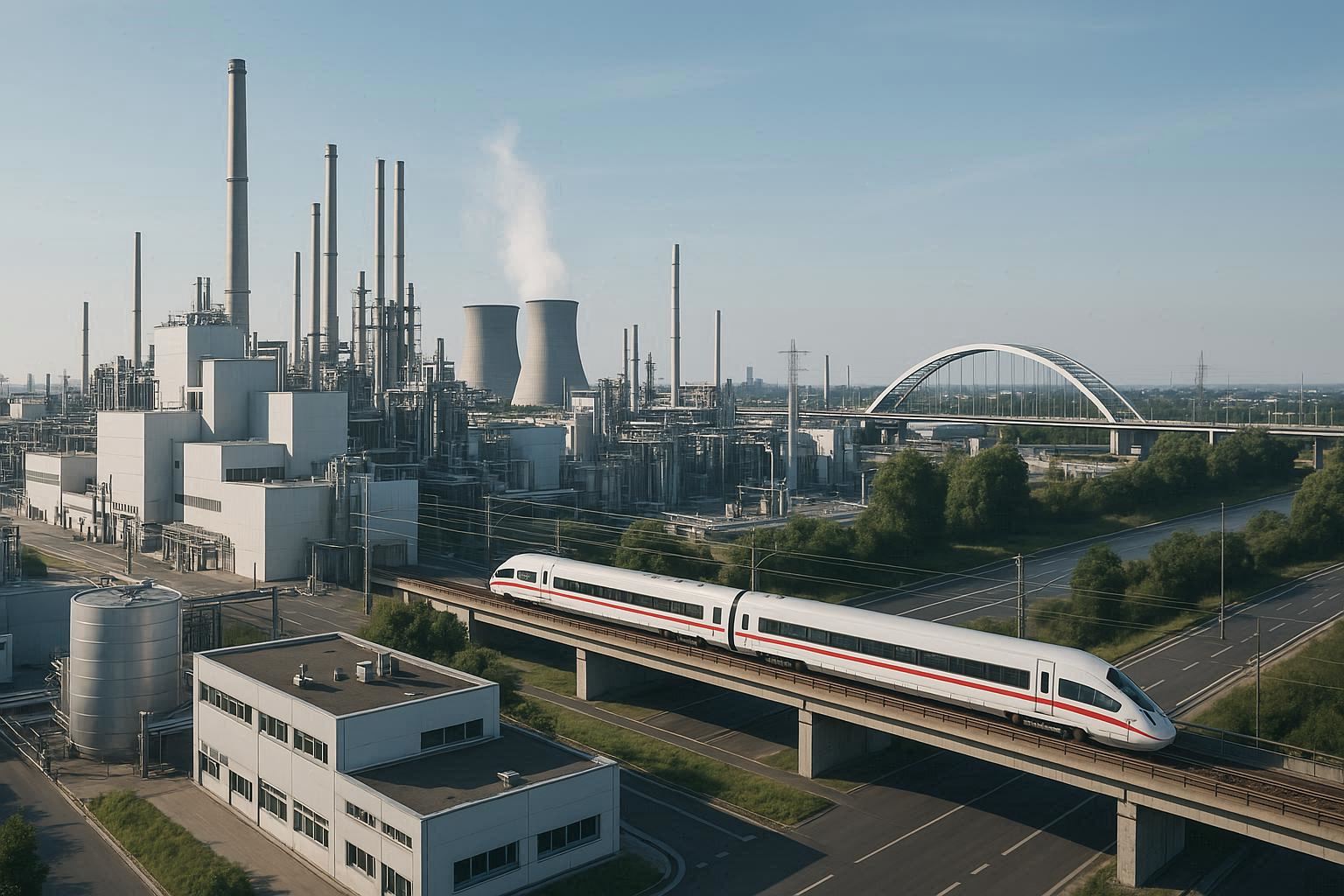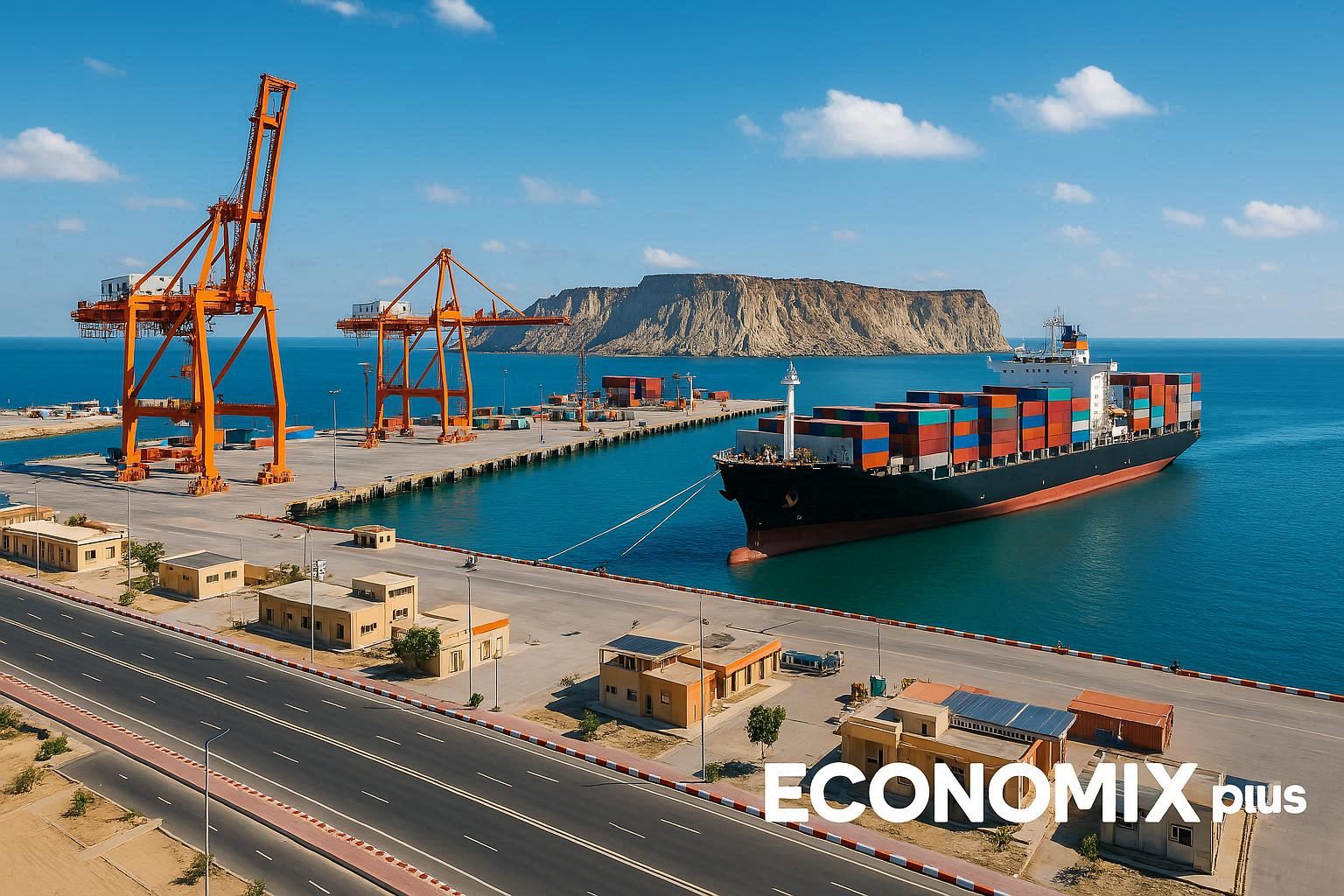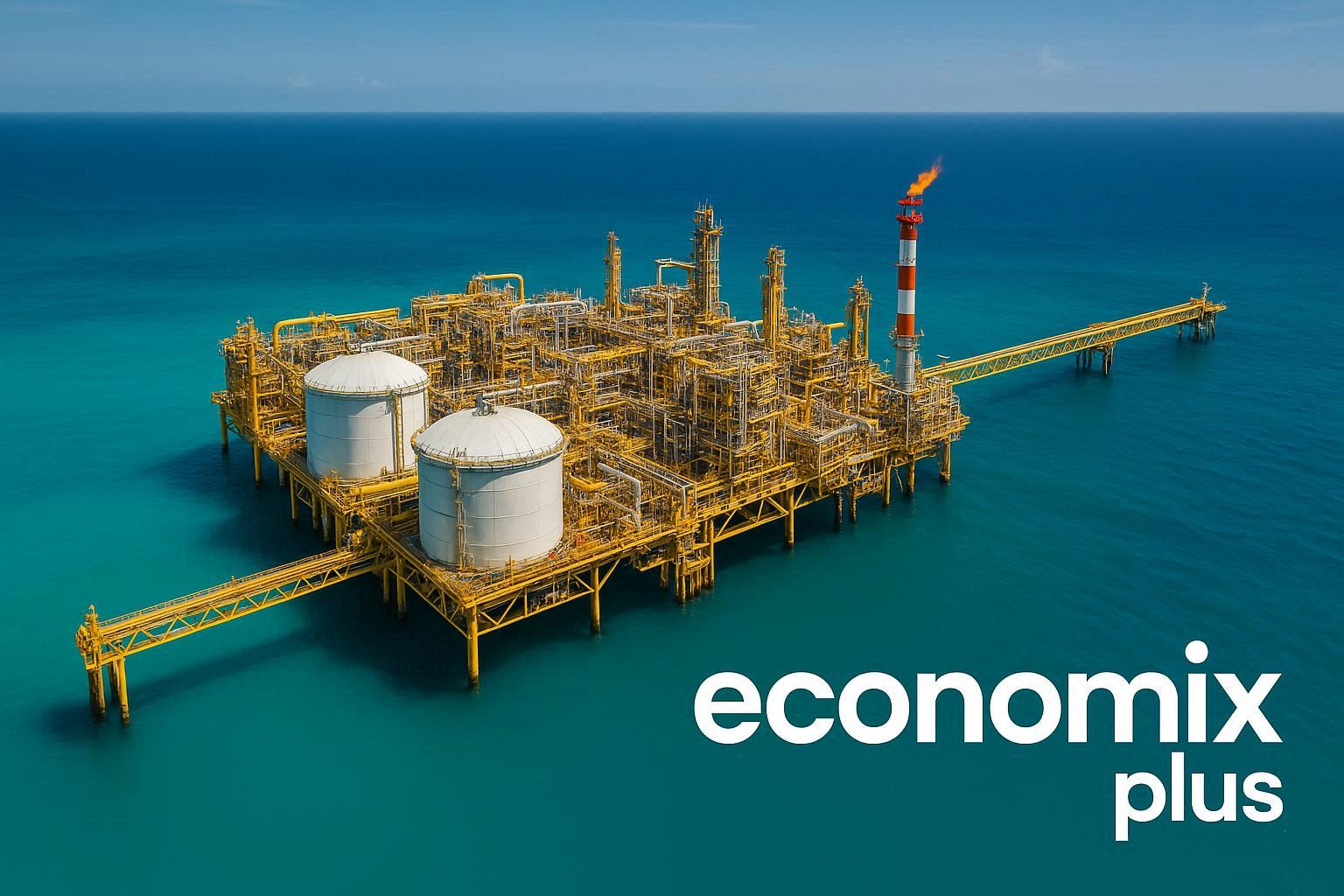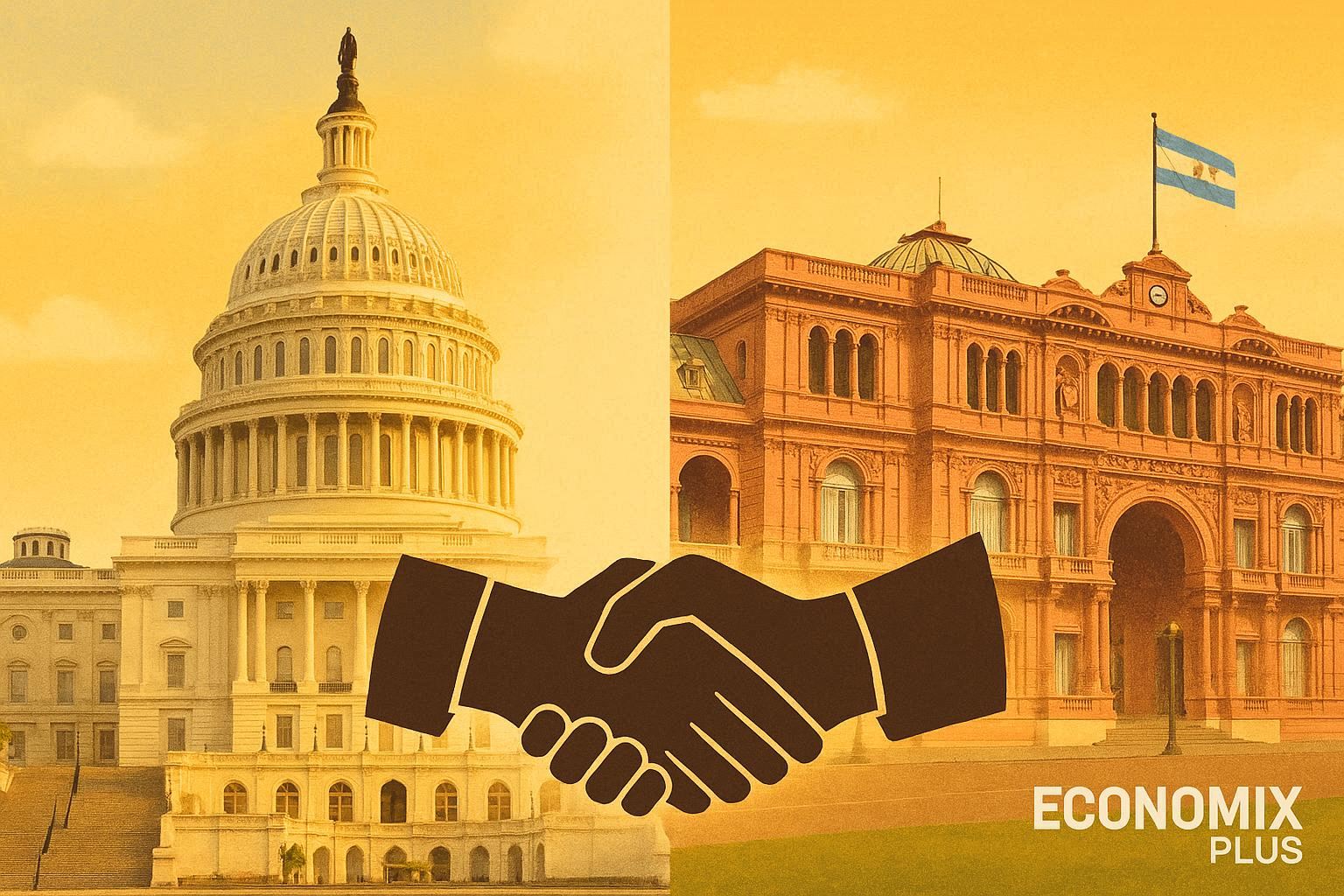Algeria, the largest African country and third-largest Arab economy, has recently been reclassified as an upper-middle income country by the World Bank. However, its economy remains heavily reliant on hydrocarbon revenues, which accounted for 83% of its exports between 2019 and 2023.
Despite its strategic geographic location at the crossroads of Europe, Africa, and the Middle East, Algeria has failed to capitalize on its advantages to diversify its economy beyond oil and gas.
This raises a critical question: What are the barriers preventing Algeria from developing new economic sectors?
Key Takeaways
- The Algerian economy is heavily dependent on hydrocarbon revenues.
- Algeria’s geographic location presents opportunities for economic diversification.
- Historical and political factors have hindered the development of new economic sectors.
- The country’s potential for growth lies in leveraging its strategic location.
- Economic diversification is crucial for Algeria’s long-term stability.
Algeria’s Strategic Geographic Position
Algeria’s position at the crossroads of Europe, Africa, and the Middle East provides significant advantages. Its vast territory, diverse landscapes, and extensive Mediterranean coastline make it a crucial player in regional and international trade. This geographic location not only facilitates access to various markets but also enhances Algeria’s ability to engage in diverse economic activities, including tourism, agriculture, and logistics. The country’s rich natural resources, combined with its strategic ports, further bolster its potential to become a hub for trade and commerce in the region.
Crossroads Between Europe, Africa, and the Middle East
Algeria’s unique location allows it to serve as a bridge between Europe, Africa, and the Middle East. This strategic position enables the country to facilitate trade and cultural exchange between these regions. The country’s proximity to major European markets, particularly through its Mediterranean ports, enhances its potential as a significant trade partner.
As Stephen P. Cohen, a renowned expert on Middle Eastern geopolitics, once noted, “The countries of North Africa are poised to play a critical role in the energy security of Europe.” Algeria, with its considerable energy resources, is well-positioned to capitalize on this opportunity.
Mediterranean Access and Maritime Potential
Algeria’s Mediterranean coastline provides direct access to major shipping routes, facilitating trade with European countries. The country’s ports, such as those in Algiers and Oran, are critical infrastructure for its economy, enabling the import and export of goods. Algeria’s maritime potential is further enhanced by its significant Exclusive Economic Zone (EEZ), which offers opportunities for fishing, offshore oil and gas exploration, and renewable energy generation.
| Country | Coastline Length (km) | Major Ports |
|---|---|---|
| Algeria | 1,240 | Algiers, Oran, Skikda |
| Morocco | 1,835 | Casablanca, Tangier, Agadir |
| Tunisia | 1,298 | Tunis, Sfax, Gabès |
Natural Geographic Advantages Compared to Regional Neighbors
Algeria’s size and geographic diversity give it a competitive edge over its regional neighbors. As the largest country in Africa, Algeria boasts a wide range of ecological zones, from Mediterranean coastlines to Sahara Desert landscapes. This diversity provides the country with various natural resources, including significant oil and gas reserves, fertile agricultural land, and potential for renewable energy generation.
Compared to its neighbors, Algeria’s strategic depth and diverse geography offer unique security and development advantages. The country’s vast territory allows for the development of various sectors, including agriculture, tourism, and renewable energy, making it an attractive destination for investment.
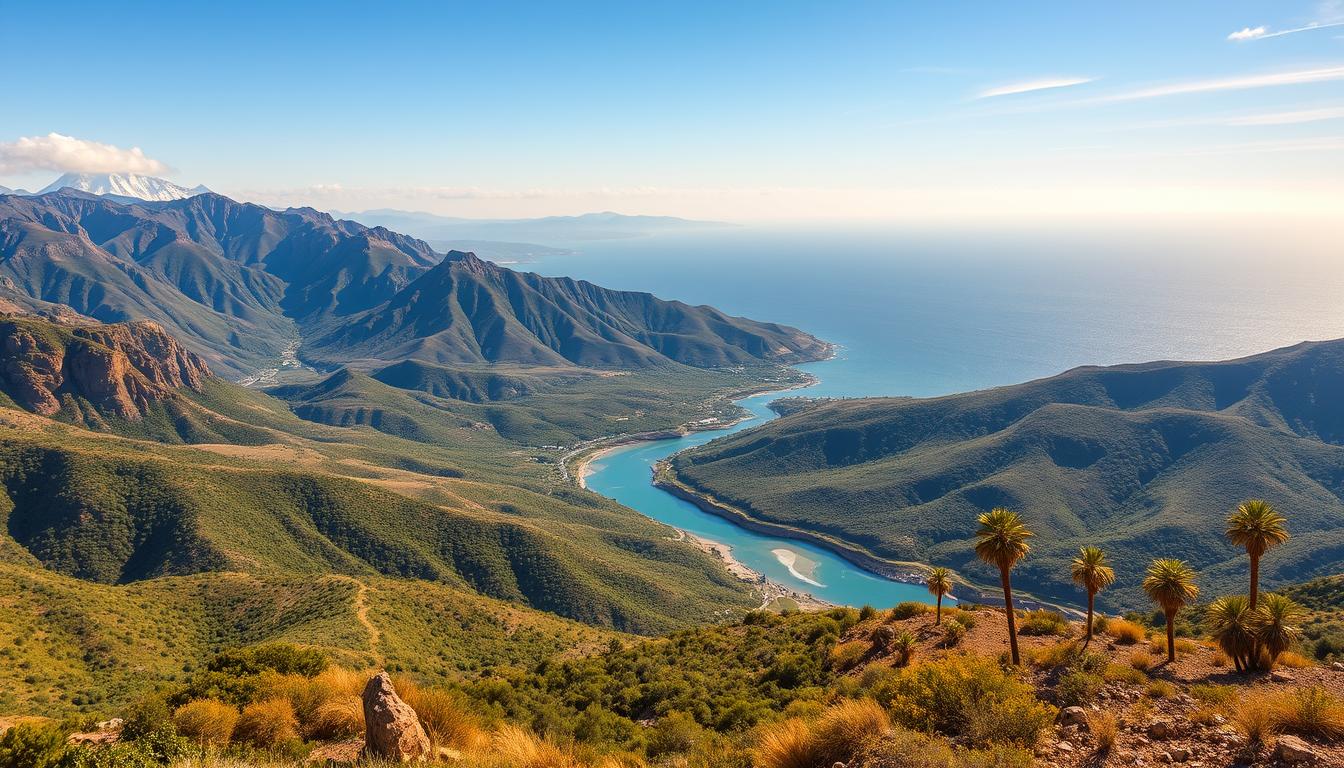
As noted by the World Bank, “Algeria has the potential to become a major player in the renewable energy sector, given its vast solar and wind resources.” Leveraging these resources could significantly contribute to the country’s economic development and diversification.
Current State of the Algerian Economy
Despite its strategic geographic location, Algeria’s economy remains heavily dependent on oil and gas exports. This reliance on hydrocarbons has led to a lack of diversification in the economy, making it vulnerable to fluctuations in global energy prices. As a result, the country faces significant challenges in achieving sustainable economic growth and stability.
The heavy focus on the energy sector means that other potential areas for development, such as agriculture, tourism, and technology, are often overlooked and underfunded. This narrow economic base not only limits job creation but also exposes Algeria to the risks associated with volatile oil markets, where sudden price drops can lead to budget deficits and reduced public spending.
Economic Indicators and Recent Performance
Algeria’s economic indicators show a mixed picture. While the country has maintained a relatively stable macroeconomic environment, challenges persist in terms of unemployment and economic diversification. The overall unemployment rate was estimated at 12.7 percent in 2024, with significant disparities among different demographic groups.
The population of Algeria is predominantly young, with a large cohort entering the job market each year. This demographic pressure exacerbates the unemployment challenge, particularly among the youth, where the rate stands at 29.3 percent for those aged 15 to 24.
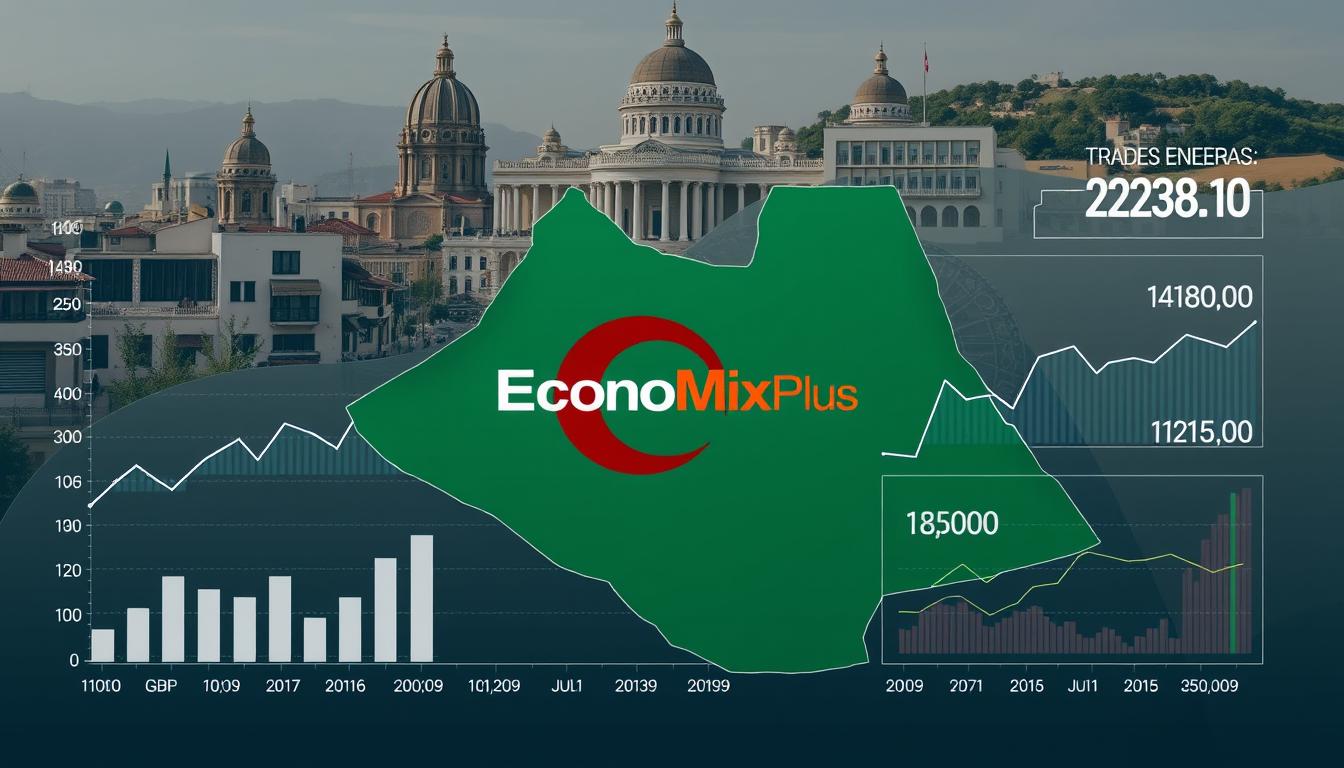
Hydrocarbon Dependency: The 83% Export Problem
Algeria’s economy is heavily reliant on hydrocarbon exports, which account for approximately 83% of the country’s total exports. This dependency makes the economy highly susceptible to fluctuations in global oil prices. The lack of diversification in the economy hinders the development of other sectors, such as manufacturing and services.
The dominance of the hydrocarbon sector also has implications for the economy as a whole. It leads to a phenomenon known as “Dutch Disease,” where the profitability of the oil and gas sector crowds out other economic activities, making it challenging for non-hydrocarbon sectors to compete.
Employment Challenges and Demographic Pressures
Algeria faces significant employment challenges, with an overall unemployment rate of 12.7 percent. The situation is more dire among certain segments of the population, particularly youth and women. The unemployment rate among women stands at 25.4 percent, highlighting the gender disparities in the labor market.
- The large youth population entering the job market each year puts additional pressure on the economy to create sufficient employment opportunities.
- The mismatch between the education system and labor market needs results in qualified graduates being unable to find suitable employment.
- There is a need to leverage Algeria’s geographic advantages to create employment opportunities in emerging sectors like renewable energy, tourism, and logistics.
Addressing these employment challenges is crucial not only for economic stability but also for maintaining social cohesion. High unemployment rates, particularly among the youth, can lead to social unrest and political instability.
Historical Context Shaping Algeria’s Economic Development
Algeria’s economic development has been shaped by a complex interplay of historical factors, including colonialism, civil conflict, and oil boom periods. The legacy of colonial rule has not only influenced the economic structures in place but has also created a dependency on certain industries that have hindered diversification.
Civil conflicts, particularly in the 1990s, further destabilized the economy, leading to a loss of human capital and investment. The subsequent oil boom periods, while providing temporary financial relief, have perpetuated a reliance on hydrocarbons rather than fostering a broader economic base. Understanding these elements is crucial to grasping why Algeria has not fully leveraged its geographic location to diversify its economy.
Colonial Legacy and Post-Independence Economic Policies
The legacy of French colonial rule has had a lasting impact on Algeria’s economic structure. During colonization, the economy was primarily geared towards serving French interests, with a focus on extractive industries rather than diversified economic development. Post-independence, Algeria continued to rely heavily on hydrocarbon resources, a dependency that was inherited from the colonial era.
After gaining independence in 1962, Algeria adopted socialist economic policies, nationalizing key sectors such as energy and industry. While these policies aimed to reduce dependence on France and promote domestic economic control, they also led to inefficiencies and a lack of competition, hindering economic diversification.
The Civil Conflict and Its Economic Aftermath
The civil conflict that ravaged Algeria during the 1990s had a devastating impact on its economy. The conflict, which was partly fueled by economic grievances and political instability, led to significant damage to infrastructure, a decline in foreign investment, and a diversion of resources towards security and military expenditures.
The aftermath of the civil conflict saw a gradual recovery, driven largely by rising oil prices and revenues. However, this recovery was not accompanied by significant structural reforms or diversification efforts, leaving the economy vulnerable to fluctuations in global energy prices.
Missed Opportunities During Oil Boom Periods
Algeria experienced significant oil boom periods, particularly in the early 2000s through 2014, when high oil prices generated substantial revenues. However, these windfalls were largely channeled into expanding subsidies and public sector employment rather than strategic investments in economic diversification.
- The failure to establish a sovereign wealth fund or invest in critical infrastructure and education limited the potential for long-term economic growth.
- Other resource-rich countries used similar boom periods to invest in strategic sectors, creating sustainable economic opportunities beyond their natural resources.
- Algeria’s lack of investment in leveraging its geographic advantages during periods of abundant capital represents a significant missed opportunity.
Quantitative data on oil revenue allocation during boom periods reveals that a substantial portion was dedicated to short-term consumption rather than long-term investments. The opportunity cost of failing to invest in geographic-based economic diversification has been high, leaving Algeria with a largely undiversified economy.
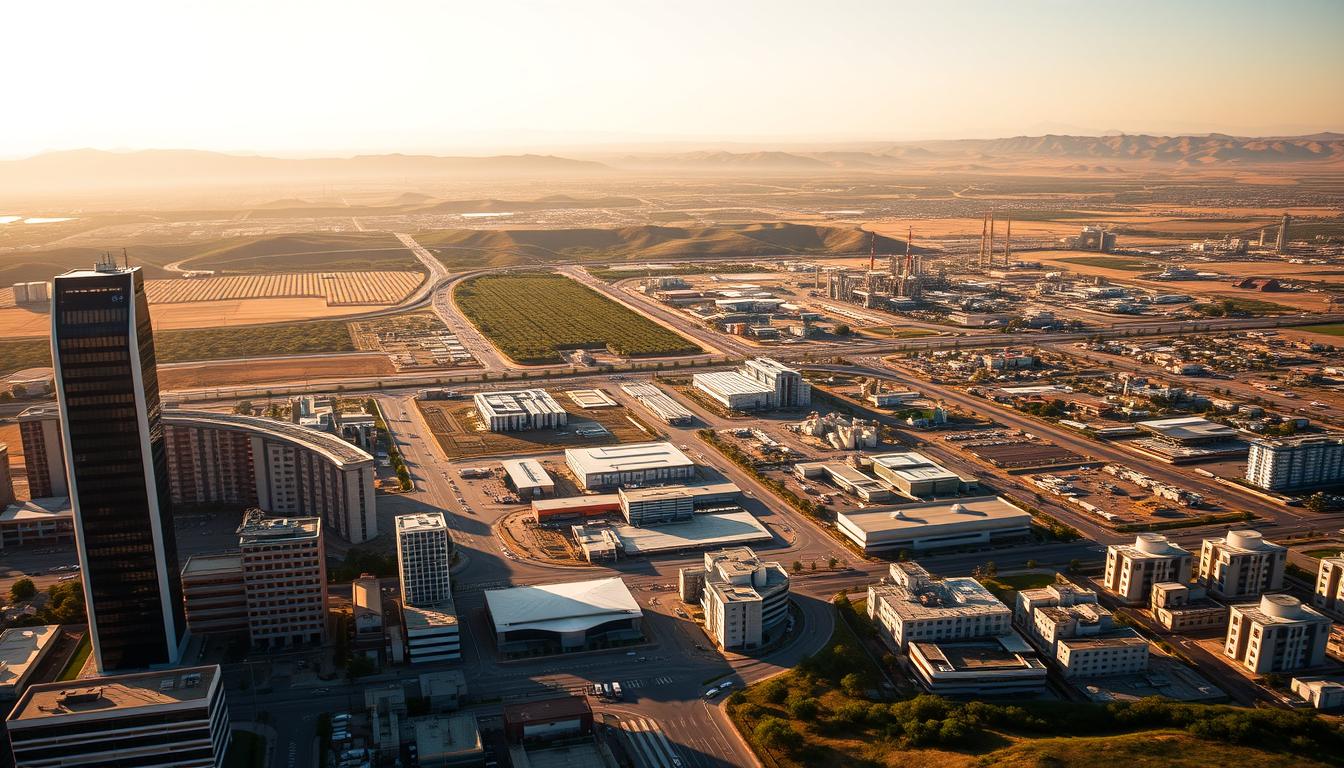
In conclusion, Algeria’s historical context, marked by colonial legacy, civil conflict, and missed opportunities during oil boom periods, has significantly shaped its economic development trajectory. Addressing these historical factors is crucial to unlocking the country’s potential and leveraging its geographic advantages for diversified economic growth.
The Governance Challenge: Algeria’s “Deep State”
Governance issues, notably the ‘deep state,’ have hindered Algeria’s ability to leverage its geographic advantages for economic development. The term “deep state” refers to a situation where a country’s bureaucracy, military, and other powerful institutions exert significant influence over the government, often behind the scenes.
This phenomenon creates a complex web of power dynamics that can stifle democratic processes and limit accountability. As a result, the decision-making mechanisms within the government may not always reflect the needs and aspirations of the broader population.
Instead, they are often driven by the interests of entrenched elites who prioritize their own agendas over national development. This lack of transparency and accountability has profound implications for economic policy, as it can lead to inconsistent strategies that fail to capitalize on Algeria’s potential for growth and diversification.
Political System and Decision-Making Structures
Algeria’s political system is characterized by a complex interplay between various branches of government and powerful institutions. The decision-making process is often opaque, with significant influence exerted by the military and other elements of the “deep state.” This has resulted in a lack of clear and consistent economic policies, hindering the country’s ability to attract foreign investment and develop its economy beyond the hydrocarbon sector.
The political system is further complicated by the presence of multiple power centers, including the presidency, the military, and various government ministries. This has led to a situation where policy decisions are often made through informal channels, rather than through transparent and accountable processes.
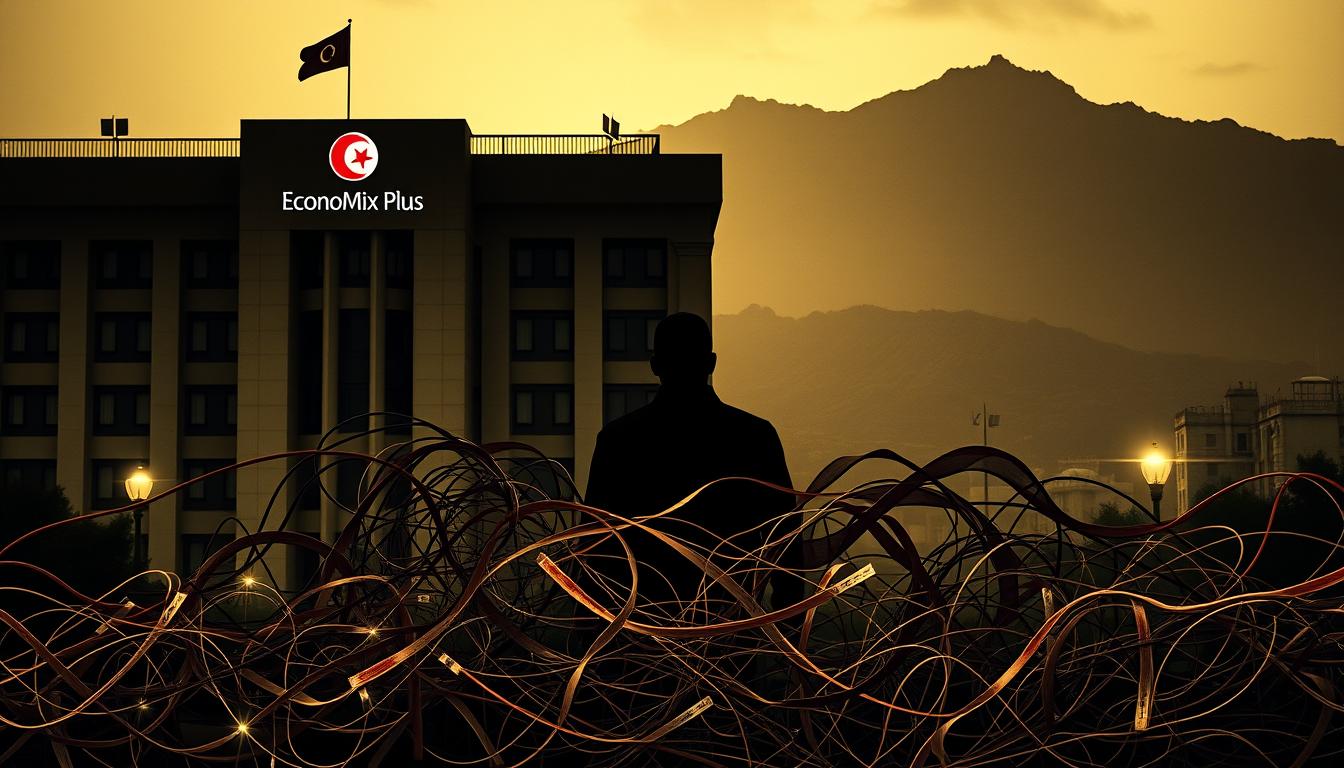
The Military’s Role in Economic Affairs
The military plays a significant role in Algeria’s economy, with various business interests and investments in key sectors. This has created a situation where the military has a vested interest in maintaining the status quo, rather than pushing for economic development and reform.
The military’s influence extends beyond direct economic interests, with significant sway over the country’s government and policy-making processes. This has contributed to a lack of transparency and accountability in government decision-making.
Corruption and Its Impact on Economic Diversification
Corruption is a pervasive issue in Algeria, affecting all levels of government and business. The lack of transparency and accountability has created an environment conducive to corruption, with significant negative impacts on the country’s economy and development prospects.
Corruption has hindered investment in non-hydrocarbon sectors, distorted market competition, and created barriers to entry for new businesses. The corruption perception indices, such as those published by Transparency International, consistently rank Algeria poorly, reflecting the widespread nature of corruption in the country.
The impact of corruption on economic diversification is particularly significant. By creating an uneven playing field and discouraging investment in new sectors, corruption has hindered Algeria’s ability to develop its economy beyond the hydrocarbon sector.
Why Doesn’t Algeria Leverage Its Geographic Location to Develop New Economic Sectors?
Algeria’s unique geographic position presents numerous opportunities for economic diversification, but these remain largely untapped. The country’s location at the crossroads of Europe, Africa, and the Middle East offers vast potential for developing new economic sectors. However, despite its favorable location, Algeria struggles to capitalize on its geographic advantages.
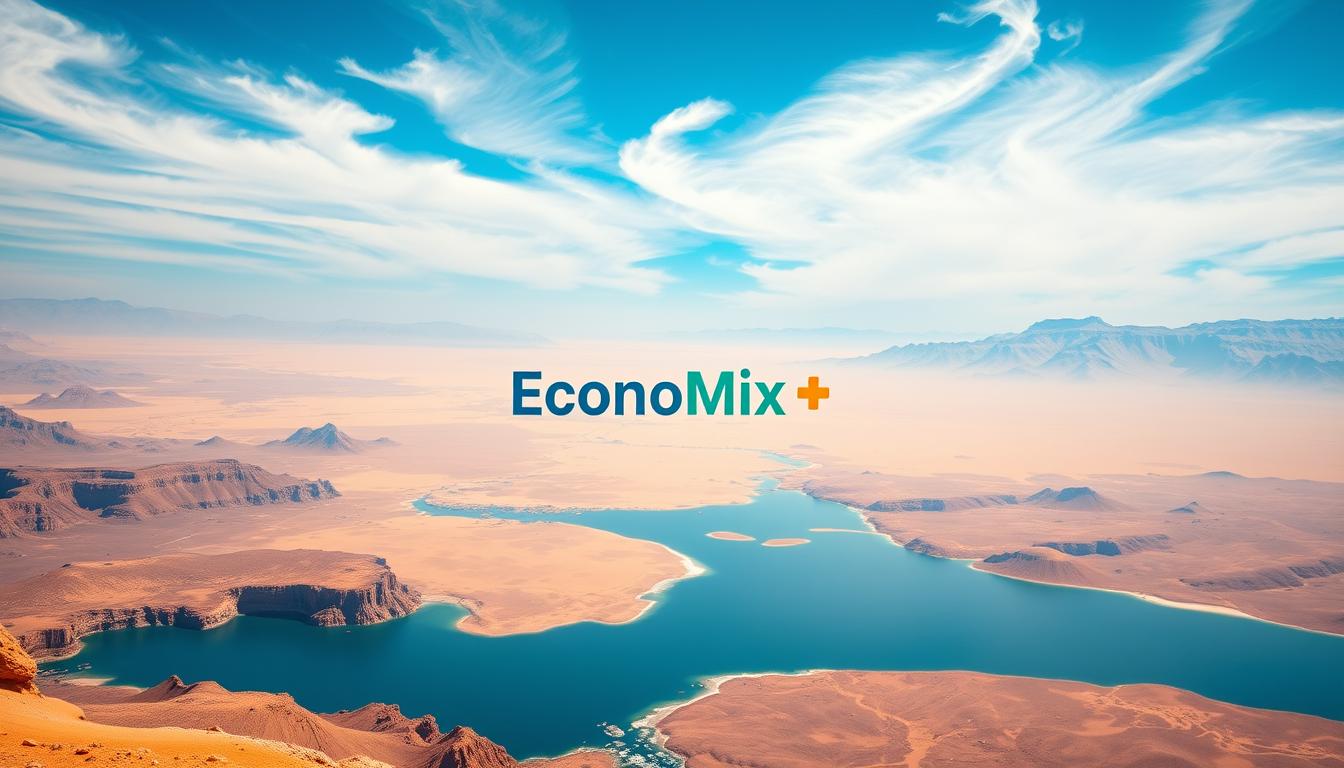
Institutional Barriers to Economic Transformation
One of the primary reasons Algeria fails to leverage its geographic location is the presence of institutional barriers to economic transformation. The country’s bureaucratic system is often slow and inefficient, hindering the implementation of policies and projects aimed at economic diversification.
The fragmentation of economic planning across different ministries and agencies prevents the development of an integrated approach to geographic leverage. For instance, the lack of coordination between the Ministry of Transport, the Ministry of Energy, and the Ministry of Tourism hampers the development of a comprehensive strategy for the tourism sector, which could benefit significantly from Algeria’s rich cultural heritage and Mediterranean coastline.
- Lack of inter-ministerial coordination
- Inefficient bureaucratic processes
- Insufficient policy implementation
Risk Aversion and Resistance to Change
Risk aversion and resistance to change are significant factors contributing to Algeria’s inability to leverage its geographic location effectively. The government and various stakeholders often prefer to maintain the status quo, relying heavily on hydrocarbon exports rather than venturing into new, potentially risky sectors.
This risk aversion is compounded by a lack of strategic vision for geographic advantages. Without a clear, long-term plan, Algeria’s economic development remains reactive rather than proactive, failing to capitalize on emerging opportunities in regions such as logistics and renewable energy.
Lack of Strategic Vision for Geographic Advantages
The absence of a comprehensive national strategy for developing sectors that naturally align with Algeria’s location is a significant oversight. Sectors such as logistics, tourism, and regional trade could greatly benefit from a well-planned strategy that leverages the country’s geographic advantages.
Other countries have successfully capitalized on similar geographic advantages. For example, Morocco has developed a robust automotive industry, while Tunisia has become a significant player in the textile sector. These countries demonstrate that with the right strategy and planning, it is possible to diversify economies and achieve sustainable growth.
To overcome these challenges, Algeria needs to develop a clear vision for its economic future, one that prioritizes leveraging its geographic location for sustainable development. This involves not only creating a comprehensive national strategy but also ensuring effective implementation through coordinated government efforts and a willingness to embrace change and innovation.
By adopting a proactive approach to economic development and leveraging its potential, Algeria can unlock new opportunities and drive growth in key sectors. The government plays a crucial role in facilitating this process through policy reforms and investment in critical infrastructure.
The Subsidy Trap: Short-Term Stability vs. Long-Term Growth
Algeria’s extensive subsidy system has been a double-edged sword, providing short-term stability at the cost of long-term economic growth. The government has maintained subsidies on essential goods and services to keep the population content, but this approach has led to significant economic distortions.
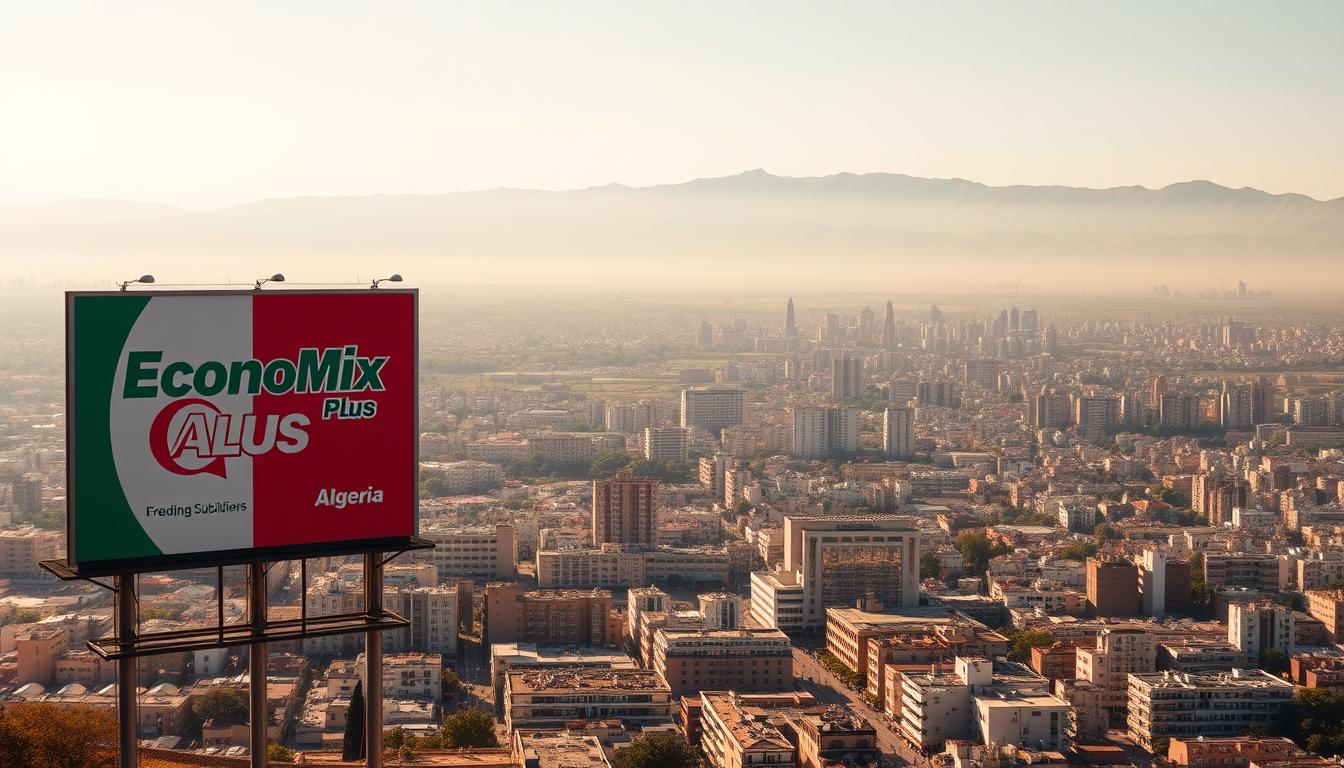
Algeria’s Extensive Subsidy System
The Algerian government has historically provided substantial subsidies on fuel, food, and other essential goods. While intended to support the less fortunate, these subsidies have largely benefited the middle class, exacerbating social inequality. The cost of these subsidies is significant, diverting resources away from critical sectors such as education, healthcare, and infrastructure.
The subsidy system has also led to widespread smuggling, particularly of fuel, as price differentials with neighboring countries create lucrative opportunities for arbitrage. This not only results in lost revenue for the state but also fosters corruption and undermines the formal economy.
Economic Distortions and Market Inefficiencies
The subsidy system has created significant economic distortions in Algeria. By artificially lowering the cost of energy and other goods, it has encouraged wasteful consumption and discouraged investment in energy efficiency and renewable energy sources. This has made the transition towards a more sustainable economy both costly and challenging.
Furthermore, the subsidies have led to market inefficiencies, as resources are misallocated due to price signals that do not reflect true economic costs. This has hindered the development of a more diversified and competitive economy, as resources are not allocated based on market principles.
The Challenge of Subsidy Reform
Reforming Algeria’s subsidy system is fraught with challenges. Previous attempts at reforms have been met with significant public resistance, forcing the government to backtrack. The key challenge lies in balancing the need to reduce the economic burden of subsidies with the social imperative of protecting vulnerable segments of the population.
A successful transition requires a comprehensive approach that includes gradual subsidy reforms, coupled with measures to mitigate the social impact, such as targeted cash transfers to the poor and investments in social safety nets. It also necessitates a broader policy framework that encourages economic diversification and promotes a more competitive economy.
By carefully managing the subsidy reform process, Algeria can unlock resources for more productive uses, supporting a sustainable and inclusive economic transition. This involves not only reducing subsidies but also implementing a coherent policy framework that fosters economic diversification and competitiveness.
Infrastructure Limitations Hindering Geographic Leverage
Algeria’s infrastructure deficiencies are a major obstacle to leveraging its geographic advantages. The country’s strategic location between Europe, Africa, and the Middle East remains underutilized due to significant gaps in its infrastructure. These deficiencies not only hinder trade and investment opportunities but also limit Algeria’s ability to compete in a global market that increasingly relies on efficient logistics and connectivity. The lack of modern transport networks, including roads, railways, and ports, exacerbates these challenges, making it difficult for businesses to operate effectively and for goods to move swiftly across borders.
Port and Maritime Infrastructure Gaps
Algeria’s ports are crucial for its economy, given its extensive coastline along the Mediterranean. However, the port infrastructure is outdated and lacks the capacity to handle modern cargo efficiently. For instance, the port of Algiers, one of the busiest, requires significant upgrades to its facilities and handling equipment to accommodate larger vessels and increased trade volumes.
- Insufficient berthing capacity and outdated cargo handling equipment.
- Limited connectivity between ports and inland transportation networks.
- Need for modernization to accommodate larger, more efficient vessels.
Investing in port infrastructure is crucial for enhancing Algeria’s maritime trade capabilities. This includes not only upgrading existing facilities but also expanding capacity to meet growing demands.
Transportation Networks and Logistics Challenges
The transportation network in Algeria, including roads, railways, and airports, faces significant challenges. The road network, while extensive, is often in poor condition, leading to inefficiencies in the transportation of goods. The railway system is limited and requires modernization to improve connectivity between major cities and economic zones.
Key challenges include:
- Inadequate maintenance of existing infrastructure.
- Lack of integration between different modes of transport.
- Insufficient logistics services to support efficient goods movement.
Improving transportation networks and logistics services is vital for reducing transit times and costs, making Algerian businesses more competitive in regional and global markets.
Digital Infrastructure and Connectivity Issues
Algeria’s digital infrastructure is another critical area that requires significant improvement. The country’s internet penetration rates are lower than regional averages, and digital services are not as developed as needed to support modern businesses.
- Limited access to high-speed internet in rural areas.
- Insufficient digital literacy among the population.
- Lack of robust cybersecurity measures to protect digital infrastructure.
Enhancing digital infrastructure and connectivity is essential for developing technology-enabled sectors that can leverage Algeria’s geographic position. This includes investing in telecommunications, improving digital services, and promoting digital literacy.
In conclusion, addressing Algeria’s infrastructure limitations is crucial for unlocking its economic potential. By focusing on port and maritime infrastructure, transportation networks, and digital connectivity, the country can overcome significant barriers to development and leverage its strategic location more effectively.
Regional Security Concerns and Economic Development
Algeria’s strategic position is undermined by regional instability, impacting its economic potential. The country’s ability to develop as a trade hub is significantly affected by security concerns in the North Africa region. This instability is not only a barrier to foreign investment but also hampers domestic economic growth, as local businesses struggle to thrive in an uncertain environment.
Moreover, the persistent threats from extremist groups and the ongoing conflicts in neighboring countries create a climate of fear that further deters trade partnerships and economic collaboration. The result is a stagnation of opportunities that could otherwise benefit Algeria’s economy and its role in regional trade.
Border Security Challenges with Neighboring States
Algeria shares borders with several countries, including Tunisia, Libya, Niger, and Mali, which have experienced varying levels of instability. This has led to border security challenges, with terrorist groups and other security threats posing a significant risk.
The Algerian security apparatus, particularly the army, remains on high alert to counter these threats. However, the ongoing security concerns have implications for trade and economic development, as potential investors are deterred by the perceived risks.
- Security threats along the borders
- Impact on trade and investment
- Strain on Algeria’s security resources
Terrorism and Its Impact on Investment
Terrorism remains a significant concern in the region, affecting not only Algeria but also its neighbors. The presence of terrorist groups discourages foreign investment, as companies are hesitant to operate in high-risk environments.
The impact of terrorism on investment is multifaceted, influencing both the decision to invest and the cost of doing business in the region. This, in turn, hampers economic growth and development.
Key effects of terrorism on investment:
- Increased operational costs due to security measures
- Reduced investor confidence
- Potential loss of business due to heightened risk
Regional Instability as a Barrier to Trade
Regional instability acts as a significant barrier to trade, affecting Algeria’s ability to leverage its geographic location. Political instability in neighboring countries disrupts potential trade corridors, reducing the market size that Algeria can access.
Infrastructure development projects that could enhance connectivity are also impacted by regional instability, as cross-border projects are often put on hold due to security concerns.
Examples of trade initiatives undermined by regional instability include:
- Disrupted supply chains
- Cancelled trade agreements
- Postponed infrastructure projects
Untapped Potential: Sectors That Could Leverage Algeria’s Location
Algeria’s strategic location offers vast opportunities for economic diversification, particularly in sectors that can capitalize on its geographic advantages. The country’s position at the crossroads of Europe, Africa, and the Middle East makes it an ideal hub for various industries. This unique geographical advantage allows Algeria to serve as a gateway for trade between these regions, fostering international partnerships and attracting foreign investment.
Key sectors such as renewable energy, tourism, and agriculture could greatly benefit from this strategic positioning, enabling Algeria to not only meet domestic demands but also export to neighboring markets. Additionally, the potential for developing free trade zones could further enhance Algeria’s attractiveness as a commercial center, encouraging the establishment of multinational corporations and creating job opportunities for its citizens.
Logistics and Transportation Hubs
Algeria’s Mediterranean coastline and proximity to major shipping lanes present a significant opportunity for developing logistics and transportation hubs. The country’s ports, such as those in Algiers and Oran, can be modernized to handle increased cargo and facilitate trade between Europe and Africa.
Investing in transportation infrastructure, including roads and railways, can enhance connectivity within the country and with neighboring states. This can make Algeria an attractive location for logistics companies and distribution centers.
| Transportation Mode | Current Capacity | Potential Capacity |
|---|---|---|
| Ports | 1 million TEUs | 2.5 million TEUs |
| Road Network | 100,000 km | 150,000 km |
| Railway Network | 3,000 km | 5,000 km |
Renewable Energy: The Solar and Wind Opportunity
Algeria has vast potential for renewable energy, particularly solar and wind power. The Sahara Desert offers some of the best conditions in the world for solar energy production, with high irradiance levels throughout the year.
Developing renewable energy can help Algeria reduce its dependence on hydrocarbons, mitigate climate change, and create new economic opportunities. The government can incentivize investment in renewable energy projects, creating jobs and stimulating local economies.
- Abundant solar resources
- Favorable wind patterns
- Government incentives for renewable energy
Tourism and Cultural Heritage Potential
Algeria’s diverse geography, from Mediterranean beaches to Saharan landscapes, offers significant potential for tourism development. The country’s rich cultural heritage, spanning Berber, Roman, Arab, Ottoman, and French influences, provides a unique cultural tourism experience.
By investing in tourism infrastructure, including hotels, transportation, and tourist facilities, Algeria can attract visitors from Europe and other regions. Promoting cultural heritage sites, such as the Casbah of Algiers and the Roman ruins of Tipaza, can further enhance the country’s tourism appeal.
Key tourism segments:
- Archaeological tourism
- Desert tourism
- Mediterranean coastal tourism
- Cultural tourism
Developing these sectors can contribute to Algeria’s economic development and create new opportunities for growth. By leveraging its strategic location and natural resources, Algeria can unlock its full economic potential.
Water Scarcity and Climate Challenges
Algeria’s water resources are under severe strain due to climate change, posing significant economic and environmental risks. The country’s reliance on desalination has grown, with the Government of Algeria (GoA) having built 11 desalination plants since 2003 and initiating the construction of three new ones, each with a capacity of 300,000 m/d. These plants are crucial in meeting the increasing water demands of a growing population and addressing the declining availability of freshwater sources.
As climate change continues to exacerbate drought conditions and alter precipitation patterns, the sustainability of these desalination efforts becomes even more critical. Furthermore, the GoA is exploring additional strategies to enhance water conservation and management, including the implementation of more efficient irrigation techniques and public awareness campaigns about water usage. The challenge remains to balance the financial and environmental costs of desalination with the urgent need for reliable water supply in urban and rural areas alike.
Water Management Issues Despite Mediterranean Access
Despite having access to the Mediterranean, Algeria struggles with water management. The increasing demand for water, coupled with the effects of climate change, has strained the country’s water resources. Desalination has become a critical component of Algeria’s water supply strategy.
The recent revisions to water pricing have not been sufficient to cover the maintenance costs of existing desalination plants, let alone invest in more efficient water management technologies such as wastewater treatment. This underpricing undermines the financial sustainability of desalination operations.
Climate Change Impacts on Agricultural Potential
Climate change poses a significant threat to Algeria’s agricultural potential. Changes in precipitation patterns and increased temperatures are altering the country’s agricultural landscape, impacting crop yields and food security.
Agriculture, a significant sector in Algeria’s economy, is highly vulnerable to climate variability. The impact of climate change on water resources further exacerbates the challenges faced by this sector.
| Impact | Description |
|---|---|
| Reduced Crop Yields | Changes in precipitation and temperature patterns affect crop productivity. |
| Increased Water Scarcity | Climate change reduces water availability, impacting agriculture. |
| Food Security Concerns | Impacts on agriculture threaten food security and stability. |
Desalination Efforts and Sustainability Concerns
Algeria’s desalination efforts, while crucial for addressing water scarcity, come with significant sustainability concerns. The high energy consumption required for desalination contributes to greenhouse gas emissions, exacerbating climate change.
To mitigate these concerns, Algeria could explore more sustainable water management practices, including the treatment and reuse of wastewater. Investing in renewable energy sources to power desalination plants could also reduce the environmental footprint of these operations.
“The challenge for Algeria is to balance its need for water with the environmental costs of desalination. Investing in sustainable technologies and practices is crucial for long-term water security.”
By adopting a more integrated approach to water management, Algeria can better leverage its geographic position while addressing the challenges posed by water scarcity and climate change.
Human Capital and Skills Gap
The Algerian economy is confronted with a paradox: a youthful population coupled with high unemployment rates, signaling a critical human capital and skills gap. With an unemployment rate estimated at 12.7 percent overall, and a staggering 29.3 percent among young people aged 15 to 24 in 2024, it’s clear that the country’s demographic advantage is not being fully leveraged.
Education System Misalignment
The education system in Algeria is often criticized for being disconnected from the needs of the economy. This misalignment results in a workforce that lacks the skills required by emerging sectors that could benefit from the country’s strategic geographic location. According to the UNCTAD Economic Development in Africa Report, there is a pressing need for educational reforms that focus on developing skills relevant to the modern economy.
To address this issue, the Algerian government needs to invest in educational programs that emphasize science, technology, engineering, and mathematics (STEM) fields, as well as vocational training that prepares students for the workforce. This would help in bridging the gap between the skills available in the workforce and those demanded by potential investors and employers in sectors such as logistics, renewable energy, and tourism.
Brain Drain and Talent Retention
Algeria faces a significant challenge in retaining its skilled workforce. Many young Algerians seek opportunities abroad due to a lack of suitable employment in their home country. This brain drain not only deprives Algeria of its much-needed talent but also indicates a failure to capitalize on the investment made in their education. The government must implement policies that encourage talent retention, such as offering competitive salaries, improving working conditions, and providing opportunities for career advancement in key sectors.
Youth Unemployment Despite Geographic Opportunities
The high rate of youth unemployment in Algeria, despite its strategic geographic location, underscores the need for a multifaceted approach to economic development. The country’s youth aspire to jobs that are often not available in the private sector, with many preferring public sector employment. However, the private sector, particularly in emerging industries, requires a different set of skills and competencies.
To connect young Algerians with opportunities in sectors that could benefit from the country’s location, it’s essential to promote entrepreneurship, enhance vocational training, and encourage private sector growth. This involves creating an ecosystem that supports start-ups and small businesses in emerging sectors, thereby generating employment opportunities that match the aspirations and skills of young Algerians.
By addressing the human capital and skills gap, Algeria can unlock its potential for economic diversification and development, leveraging its strategic geographic location to create a more prosperous future for its population.
Comparative Analysis: How Similar Countries Leverage Location
Several countries have shown that leveraging geographic advantages can be a key factor in achieving economic diversification. This section will examine how similar resource-dependent economies have successfully diversified by utilizing their strategic locations.
Morocco’s Strategic Economic Diversification
Morocco is a prime example of a country that has effectively leveraged its geographic location to diversify its economy. With its proximity to Europe and its coastline along the Mediterranean, Morocco has become an attractive destination for foreign investment. The country has invested heavily in its automotive and aerospace industries, creating new sectors that have contributed significantly to its economic development.
Morocco’s strategic approach includes developing infrastructure such as ports and transportation networks, which has enhanced its position as a logistics hub. This has not only boosted trade but also created employment opportunities, contributing to the overall health of the economy.
Tunisia’s Approach to Mediterranean Opportunities
Tunisia, another North African country, has also capitalized on its Mediterranean location to drive economic growth. Tunisia’s economy has benefited from its strategic position, which provides access to European markets. The country has focused on developing its textile industry and has become a significant player in the European supply chain.
Tunisia’s efforts to enhance its business environment have included reforms aimed at improving the ease of doing business and attracting foreign investment. These efforts have paid off, with Tunisia experiencing growth in various sectors, including manufacturing and services.
Lessons from Other Resource-Dependent Economies
Other resource-dependent economies, such as Malaysia, Indonesia, and the United Arab Emirates, have also successfully diversified their economies by leveraging their geographic advantages. These countries have employed various strategies, including sovereign wealth fund investments, strategic infrastructure development, and targeted sector promotion.
- Malaysia has developed its palm oil industry and leveraged its ports to become a key player in global trade.
- Indonesia has focused on its rich natural resources, developing its mining and agricultural sectors.
- The United Arab Emirates has transformed into a business and tourism hub, capitalizing on its strategic location between Asia and Europe.
These countries demonstrate that with the right strategies, resource-dependent economies can achieve significant diversification and development. The key is to identify and capitalize on the unique advantages offered by their geographic locations.
By examining these examples, Algeria can draw valuable lessons on how to leverage its own geographic advantages to drive economic growth and reduce its dependency on hydrocarbon exports.
Recent Reform Attempts and Their Limitations
Despite efforts to reform, Algeria faces substantial barriers in implementing policies that could capitalize on its strategic location. The country’s recent reform attempts, including changes to the investment law and the introduction of a Government Action Plan for Economic Transition, have been met with significant challenges.
The 2020-2021 Investment Law Changes
In 2020 and 2021, Algeria introduced significant changes to its investment law aimed at improving the business environment and attracting foreign investment. These reforms included measures to simplify investment procedures, offer incentives, and enhance the role of the private sector. As noted by a recent report, “the new investment law represents a significant step towards creating a more favorable business environment in Algeria.” The reforms aimed to address some of the long-standing issues hindering investment in the country.
However, the implementation of these reforms has faced several challenges. According to a statement by the Algerian government, “the effective implementation of the new investment law requires significant efforts to address the existing infrastructure and bureaucratic challenges.” The complexity of the Algerian bureaucracy and the need for further institutional reforms have slowed down the process.
Government Action Plan for Economic Transition
The September 2021 Government Action Plan has made the transition to a private sector-led growth and job creation model a developmental priority. The plan emphasizes rationalizing public spending, reducing imports, boosting non-hydrocarbon exports, and improving the business environment. As highlighted in the plan, “reforming public banks and state-owned enterprises is crucial for achieving economic diversification and improving competitiveness.”
The plan also focuses on enhancing the role of the private sector in driving economic growth. This includes initiatives to support small and medium-sized enterprises (SMEs) and to promote entrepreneurship. However, the success of these initiatives depends on effective implementation and overcoming resistance to change.
Barriers to Implementation and Reform Resistance
One of the significant barriers to implementing economic reforms in Algeria is the resistance from vested interests. The current economic structure benefits certain groups, and any significant changes to this structure are likely to face opposition. As observed by analysts, “the entrenched interests in the current system pose a major challenge to reform efforts.”
Additionally, bureaucratic inertia and fear of social instability also contribute to the resistance against reforms. The Algerian bureaucracy is known for its complexity and slow pace, which can hinder the effective implementation of new policies. Furthermore, concerns about potential social unrest resulting from economic reforms can also slow down the reform process.
To overcome these challenges, it is essential to develop strategies that address the sources of resistance and promote a more inclusive and sustainable approach to economic reform. This includes engaging with various stakeholders, enhancing transparency, and building consensus around the need for reforms.
By understanding the barriers to implementation and addressing them effectively, Algeria can enhance its ability to leverage its geographic advantages and achieve sustainable economic development.
The Hirak Movement and Demands for Economic Change
The Hirak movement has brought to the forefront the urgent need for economic change in Algeria, highlighting the disconnect between the government’s policies and the populace’s demands. This movement, which began as a protest against specific economic and political grievances, has evolved into a broader call for systemic change.
Popular Protests and Economic Grievances
The Hirak movement’s protests have underscored the deep-seated economic grievances felt by many Algerians. Issues such as unemployment, corruption, and the lack of economic opportunities have been at the forefront of the protests. The movement’s persistence highlights the growing dissatisfaction with the current political and economic status quo.
Many Algerians feel that the government has failed to address their economic needs, leading to widespread discontent. The protests have called for reforms that would lead to more equitable economic opportunities and an end to corruption.
Civil Society’s Vision for Economic Diversification
Civil society within Algeria, as represented by various groups within the Hirak movement, has articulated a vision for economic diversification that moves beyond the country’s reliance on hydrocarbons. This vision includes developing other sectors such as tourism, agriculture, and renewable energy to create a more sustainable economy.
The push for reforms is not just about addressing immediate grievances but also about creating a long-term economic strategy that benefits all Algerians. This involves not only government action but also the engagement of the private sector and civil society in the economic development process.
Political Stalemate and Economic Reform Paralysis
Despite the clear demands for change, a stalemate has developed between the Hirak movement and the government. This stalemate has resulted in a paralysis in reforms, as neither side has been able to impose its will on the other.
The lack of progress on reforms has significant implications for Algeria’s economy. The political deadlock not only affects the government’s ability to implement policies but also impacts investor confidence, as potential investors are wary of committing to projects in a politically uncertain environment.
To break this stalemate, it is crucial that both sides engage in meaningful dialogue. The government must be willing to listen to the Hirak movement’s demands and work towards implementing the necessary reforms to address Algeria’s economic challenges.
Path Forward: Leveraging Algeria’s Geographic Advantages
To unlock Algeria’s economic potential, it’s crucial to leverage its strategic geographic location effectively. Algeria’s unique position between Europe, Africa, and the Middle East offers a significant opportunity for economic diversification and growth.
Policy Recommendations for Geographic-Based Development
Effective policy recommendations are essential for leveraging Algeria’s geographic advantages. The government should focus on creating a favorable business environment that encourages investment in sectors that can capitalize on the country’s strategic location. This includes developing logistics and transportation hubs, promoting renewable energy projects, and enhancing tourism infrastructure.
- Streamline regulatory processes to attract foreign investment
- Invest in infrastructure to support emerging sectors
- Develop human capital through targeted education and training programs
By implementing these policies, Algeria can create a robust economy that is less dependent on hydrocarbon exports. The key is to balance short-term needs with long-term strategic goals.
International Partnerships and Regional Integration
International partnerships and regional integration are vital for Algeria to fully leverage its geographic advantages. By strengthening ties with neighboring countries and engaging in regional trade agreements, Algeria can enhance its position as a key player in regional trade and commerce.
Algeria’s participation in regional organizations such as the Arab Maghreb Union and the African Continental Free Trade Area (AfCFTA) can provide significant opportunities for economic cooperation and integration. These partnerships can help attract foreign investment, promote trade, and enhance economic stability.
Balancing Short-Term Stability with Long-Term Transformation
One of the significant challenges Algeria faces is balancing short-term stability with long-term economic transformation. While maintaining social stability is crucial, it’s equally important to implement reforms that drive economic growth and diversification.
A gradual approach to reform can help maintain social cohesion while progressively developing sectors that capitalize on Algeria’s geographic location. Targeted social protection mechanisms can replace broad subsidies, freeing resources for investments in geographic-based economic development.
Effective communication and public engagement strategies are essential for building popular support for economic transformation efforts. By sequencing reforms carefully and managing transition risks, Algeria can steadily advance toward an economy that better leverages its strategic position.
In conclusion, leveraging Algeria’s geographic advantages requires a comprehensive strategy that includes policy reform, international partnerships, and careful management of the transition process. By implementing these measures, Algeria can unlock its economic potential and achieve sustainable growth and development.
Conclusion
The untapped potential of Algeria’s geographic location remains a significant challenge for the country’s economic development. Despite its strategic position between Europe, Africa, and the Middle East, Algeria has struggled to diversify its economy beyond hydrocarbons.
The main barriers to leveraging its geographic advantages include governance challenges, a heavy dependency on hydrocarbon exports, infrastructure limitations, and significant human capital gaps. These challenges have hindered the development of new economic sectors, such as logistics, renewable energy, and tourism, which could capitalize on Algeria’s unique geographic location.
The urgency for reform is clear, given the declining sustainability of the current economic model and growing social pressures. By addressing these barriers, Algeria can unlock its potential for economic diversification and development, paving the way for a more sustainable future for the country and its economy.
